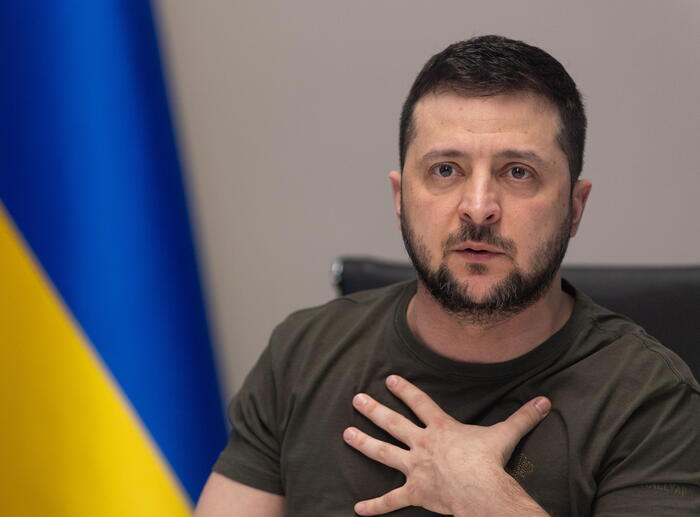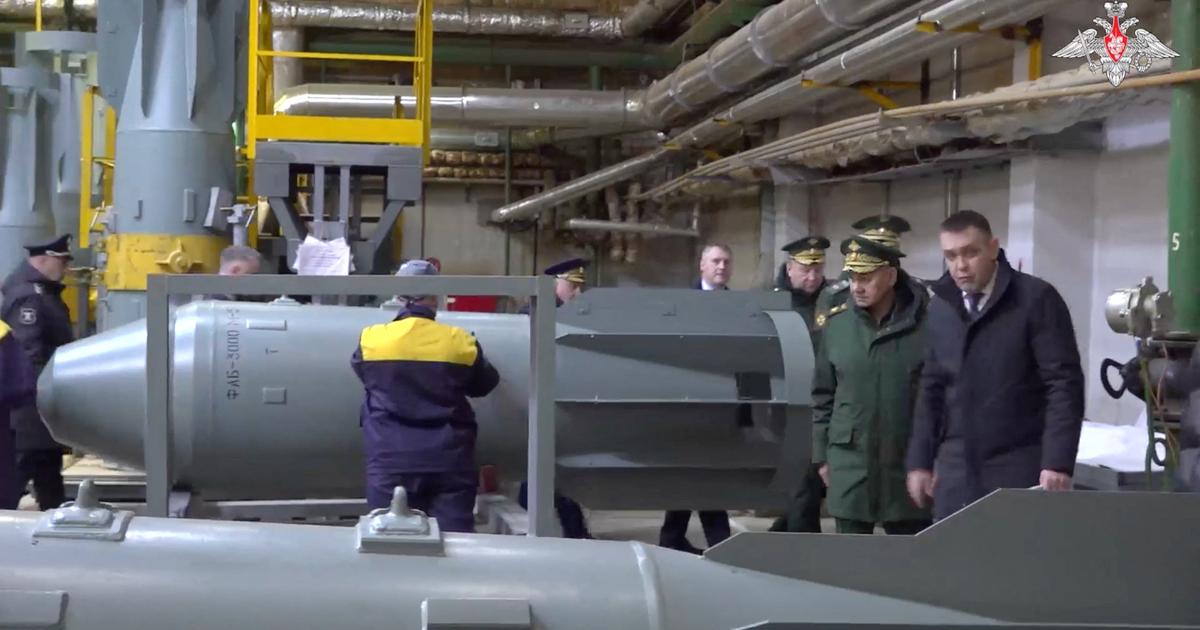This is what Mariana Kolpakova could do before the war: vacations by the sea, dine in restaurants, buy household appliances if she needed them.
She had her own business and it worked.
"She would allow me anything," recalls this 48-year-old woman, leaning on the arm of a bench in the Sikhivskii district of the city of Lviv, in western Ukraine.
Of course, she did that when she lived in Kharkov, more than a thousand kilometers away from this neighborhood and today the target of Russian bombs.
Mariana is now what international humanitarian law calls an internally displaced person.
She fled from Kharkov in March.
Her fishing tackle shop in the notorious Barabashovo market had been vandalized in a brutal attack – she flashes photos of her smashed-up shop to smithereens.
Today,
the woman relies on help from a UN agency and the Ukrainian government.
"I can't do what I used to do anymore," says Mariana, "I've only gone out to celebrate my birthday in a café."
According to data from the United Nations High Commissioner for Refugees (UNHCR), as of July 27, 436,000 citizens who have fled their homes since February to other parts of Ukraine have received aid of 2,200 hryvnias per month, about 58 euros ―for By the end of the year they want to reach one million beneficiaries.
This is thanks to the monetary assistance program developed by this UN agency with the aim that the most vulnerable within Ukraine – similar help is also provided to those who crossed the border to neighboring countries – are a step above the mere survival.
MarIana is one of these beneficiaries.
Let's go back to it to see how far help can be stretched.
“We spend about 2,500 hryvnias a week per person on food,” she calculates.
And she says it in the plural because her mother, a sister, her brother-in-law, his mother and her niece left with her from Kharkov.
2,200 UAH each per month for three months, which is the first period of development of this program.
He is not the only one: other humanitarian organizations, such as the International Committee of the Red Cross or Unicef, also provide an amount of cash for those in need.
The government of the country does the same.
The beginning of the Russian invasion on February 24 provoked an unparalleled response from the international community, both citizens and humanitarian organizations.
Millions of people sent medicine, food, clothes, toys.
But the emergency aid model has changed and in the case of Ukraine, with technology that works and a modern financial system in force, it has turned to cash, always agreed between aid organizations and the Ministry of Politics. Ukrainian Social.
Why give them blankets and soup if they can have their own income?
"I prefer to have my money to choose what to buy," adds Mariana.
Dignity for an autonomous woman who earned her living as an entrepreneur after completing higher studies in urban economics.
The aid, however, is insufficient for this Kharkov family and for any other.
They practically do not buy meat or fish, and dairy products only once a week.
"Not even a piece of candy," she explains.
Inflation in Ukraine is one step ahead of that of the rest of the world, above 21%, but with forecasts of reaching 30% for all of 2022. In the case of food products in the basic basket, the increase in prices is at 35%.
Fuel is not far behind and has almost doubled in a year, with an increase of 90%.
For all this and to stimulate sales, the Government has devalued the national currency by 25%.
Takhmina Slingarskaia and her husband, Artur Kuznetsov, with their two children at a registration center for cash assistance, in Lviv, Ukraine, on August 4. UNHCR
Artur Kuznetsov, 39, and Takhmina Slingarskaia, 38, know little about it. They have nothing at all.
They are in the same place where Mariana went one day to ask for help, the registration center managed by the Ukrainian organization Right to Protection, which collaborates with UNHCR.
His story is disheartening.
But they tell it and sometimes they even have a smile.
They arrived a week ago from Nikopol, bombed in recent days by Russian artillery.
"For the first five months we were safe," says Artur, "but the bombing in the last few days made us leave."
They don't know for sure if their house is still standing.
The couple is accompanied by their two children, ages 7 and 12.
In their homeland they were dedicated to what was coming out, but with few resources, so they sold their car to start the trip.
Between that and eating, their pockets are empty and they have no choice but to sleep at the Lviv train station.
They need those 2,200 hryvnias to stay indoors, to continue eating and to buy clothes for the children, because winter is near.
In Ukraine, the cold is real.
"I would like to travel to Hamburg [Germany]," says Takhmina, "to have my eyes operated on."
She has not seen since she was nine years old because of glaucoma.
But her husband does not have a passport, he is an orphan and only has some papers from the orphanage where he grew up.
The thing is difficult.
"How are they after all?"
“Desperate, we don't feel human.
We have to go back to the station, so we are sad.
Artur speaks these words and returns to the site to complete the registration.
They make it.
Now they will be able to withdraw the money at Ukrposhta (post office), after a telephone message.
Or if they had a bank account, which is not the case, take it out ―through the Rapid financial intermediary, the money comes from the United Nations box to the Ukrainian banks― and spend it as they see fit, although the experience of these programs says that the Most buy food, pay rent and attend to their hygiene and health.
They are not blankets or food, it is money to choose, but it falls short and the stigma of the person who requires help is not loaded at a stroke.
Mariana already said it from that bank in Sikhivskii.
“I feel dependent.
I am using the opportunities they give me, but I have nowhere to go to look for work and I am sad.
I want to go back home to be independent again.”
Follow all the international information on
and
, or in
our weekly newsletter
.
50% off
Subscribe to continue reading
read without limits
Keep reading
I'm already a subscriber






/cloudfront-eu-central-1.images.arcpublishing.com/prisa/LUEKJXRUALROT3APFHMVZZCGGI.jpg)